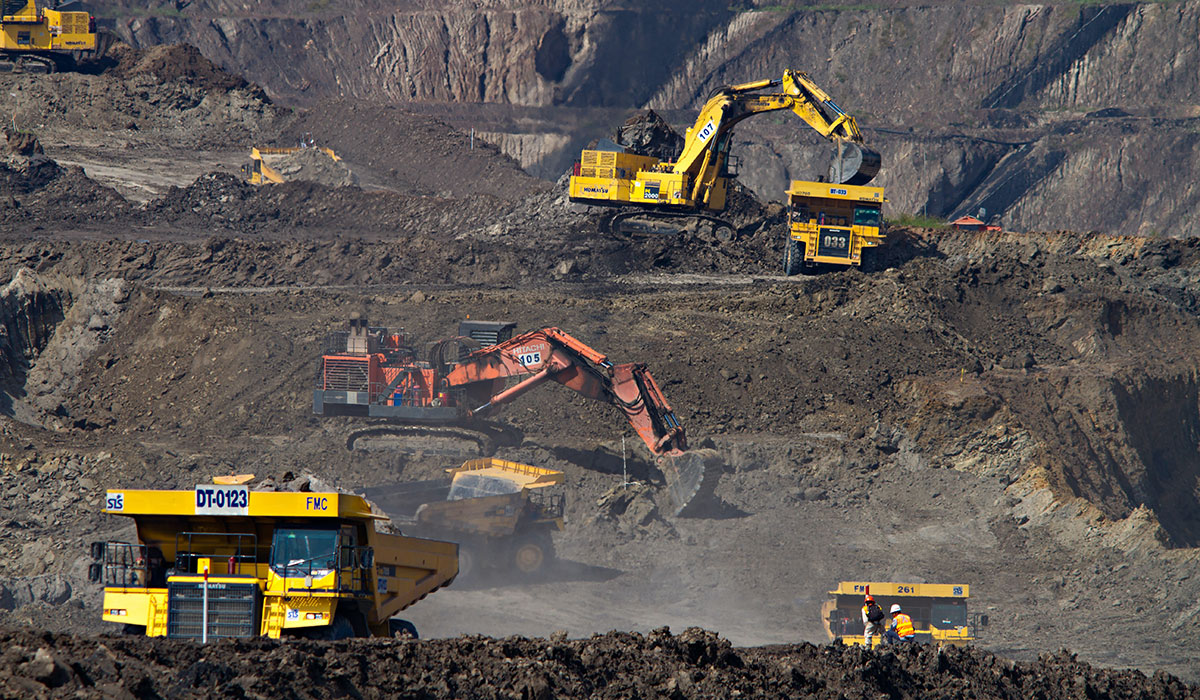More than 7 000 captains of industry, investors and government officials are expected to descend on Cape Town this week for the continent’s largest mining conference. But one of the sector’s key investors won’t be at the African Mining Indaba.
The annual event is known as a place where deals happen but, more than 1 000km north of Cape Town, in Welkom, it is a very different kind of mining investor who won’t be there.
For Alice Magala, mining has always been a part of her life.
“For as long as I have known my father, he worked in the mines. [When my siblings and I were] growing up, he would tell us tales of his adventures going deep into the earth. He told stories of love, courage and faith,” she remembers.
Starting in the 1880s when gold was first discovered, the mining houses colluded with colonial governments to put in place a system of laws and taxes that forced black men to leave their homes and find work in the mines. Black women and girls were legally required to remain in rural areas, where they took up the work usually done by men.
And, when the men returned, often desperately ill with pulmonary disease, it was women who again took up the work – this time of caring for their broken bodies.
In 1997, Alice’s father, Abel Antonio Magala, returned to Welkom.
“He didn’t come home because he was retiring to enjoy the fruits of his labour. He came home because he was sick and half his lungs were gone because of the dust from the mines,” she says.
“He told us he had silicosis and tuberculosis (TB).”
In May last year, the high court in Johannesburg ruled that miners who developed silicosis and TB while on the mines and their families could pursue a class action suit against their former employers for compensation.
As part of the case, Sonke and the HIV lobby group, the Treatment Action Campaign, presented evidence of mining’s gendered effects, including the burden of unpaid caregiving provided by women and children to former miners.
Caregiving is demanding work. Those nursing the ill must, for instance, carry and bathe them, and also monitor their medication. It also takes a heavy emotional toll. A 2006 University of KwaZulu-Natal study published in the African Journal of Aids found that caregivers are often anxious about a decline in their loved one’s health, which they cannot control. This anxiety manifests itself in tearfulness, nightmares, insomnia and trauma.
These sacrifices go unrecognised, contributing to a cycle of exploitation that is rooted in oppressive colonial laws and for which mining houses bear few consequences.
There is a Setswana phrase: Mma ngwana o tshwara thipa ka fa bogaleng. (A mother holds a knife by the blade.) It means that a woman will do anything in her power for her family and, by extension, her community.
Alice’s father did not come home the same man.
“The once lively man was gone. He sat in the backroom shack and had no life. He didn’t tell his tales anymore. All he did was cough. He would cough nonstop. He didn’t sleep. No one slept.”
Care work can be a full-time, unpaid job, in effect compelling many women and girls to forego income-generating, educational and other opportunities.
Alice had aspirations of going to college and getting a good job to help to provide for her family. In 2013, she was accepted as a business management student at Welkom College.
“But my dream was short-lived. My father’s condition became progressively worse. All the money was spent on his care. There was no money to continue going to school. There was no money for accommodation, books or even fees. What was worse was that my mother could no longer take care of my father alone.
“I had no choice but to leave school in order to assist my mother with taking care of my father,” she says.
The May 2016 court ruling allows widows and dependents of those miners who died in the early stages of the silicosis and TB litigation to claim for damages, such as pain and suffering, in part because of an understanding of their burden of care.
Before the ruling, if plaintiffs died before cases were decided, their claims would expire and the family members were not eligible for compensation.
Magala died in 2014 after 39 years on the mines.
Legal teams are now preparing to argue for the right of miners and their families to compensation at the Supreme Court of Appeal later this year. The court battle continues, with the promise that families like the Magalas will one day see justice. But it also means further delays for the thousands of mineworkers and families waiting for compensation for the sector’s failure to protect them from TB and silicosis, an incurable, fatal but preventable lung disease.
We hope a victory at the Supreme Court of Appeal will mark the end of a long journey to compensation for thousands.
Absent from the conversations between industry tycoons at the indaba will be the voices of the biggest investors in the mining industry: the women who, like Alice, nurture and care for mining’s labour force.
So, when the country turns its attention to those who call the shots in the industry and investors who will gathered at the Cape Town International Convention Centre this week, it should remember who the real investors in the mining sector are: the women who remain unnamed and ignored but without whom this sector would be short of labour.








